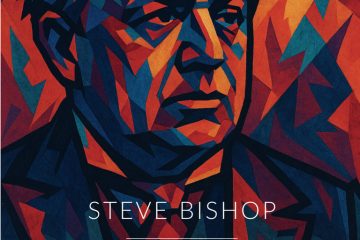For some time I’ve been thinking a lot about how to reach sixth formers with the Christian faith. We are talking about 17 and 18 year olds who dislike ‘religion’.
I am reflecting on what I learned when I taught Religious Education (RE) and Philosophy A level in a high school in Bath in the noble county of Somerset. We’re talking early 1990’s.
Every week there was a 70-minute Religious Education lesson for the entire sixth form. Teachers from all departments were expected to deliver a course on the Christian faith for about 100 students. You might be surprised to hear that some of my colleagues crafted all kinds of feeble excuses to avoid this RE challenge. “Grandma tried to poison me. Again.” “ My pet llama is vomiting all the time.” “A large rat attacked my daughter.”
I refuse to elaborate or snitch on old colleagues.
At first there was a programme where various bishops, priests and worthies engaged the students with their pious homilies. This didn’t go down well with the young people. There was a lot of yawning, muttering, croaking and smirking.
This led me to an important area of sustained research. I spent a lot of time observing both the speakers and the students. Who did well? Who did badly? How did the sniggering teenagers respond? I noted that talks that just focused on the Christian faith went down badly. How could I improvise something better?
I prayed about this and decided to run the programme all on my own. The other teachers sighed with relief, patted me on the back and withdrew to the staff room for coffee and celebratory cake. I knew this scheme of mine would be taxing and frustrate my desire to watch football on the telly but a deep conviction filled me.
A course on the Christian faith aimed at young adults should be fascinating, thought-provoking and engaging.
I decided to teach a course on ‘Beliefs in Pop Music’. I played a range of pop songs by Madonna, U2, Dire Straits, The Doors, Talking Heads and Nirvana. Do remember it was 1992. I then invited the students to think about the hidden worldviews in the lyrics.
What was Madonna trying to say in her song ‘Material Girl’? What was the message in John Lennon’s famous song ‘Imagine’? I explained the consumerist, materialist, nihilist and postmodernist mindsets lurking in the lyrics to the students. Then I contrasted these beliefs with Christian ones. It was so encouraging to see a very positive response from the assembled throng. Do I have any evidence that this approach worked? The students gave me a standing ovation after the final session of the year.
My approach was simple. Unpack worldviews they have never thought about. Then contrast these unnoticed mindsets with New Testament teaching. Here’s how it works.
I did a session on sex trafficking in the Philippines. Tragically girls and boys are sold by their destitute parents into a life of slavery. In the worst forms of sexual slavery children are chained to beds, abused daily, and made into a plaything for the rich and powerful. This slavery thrives because of corruption which functions at all levels of society. I told the story of Shay Cullen who would swap his clerical robes for the guise of a paedophile tourist. Using hidden cameras, Cullen visited the hidden places where children are enslaved and abused.
I showed the students a video clip in which Cullen infiltrated the brothel of an Australian madam who explained calmly that this was the ‘cheapest’ sex around. To be honest her language was rather more colourful than my wording suggests.
I informed the students that brothel owners, human traffickers, sex tourists and bribed police officers are living in a cynical, materialist story that commodifies innocent boys and girls. Children have morphed into items for sale. I was careful to get their feedback. They were deeply challenged.
Roy Keane (football pundit) summed up this dangerous faith when he said: “If I was to offer advice to Wayne Rooney, who is a good lad, I would tell him to make sure he looks after number one. Players are pieces of meat — that’s how I look at it.”
I named and shamed this materialist belief system that mugs so many today. Only by understanding this dark faith can we make sense of human trafficking. Then I contrasted this invisible and unexamined faith with gospel teaching. I pointed out that children are not just ‘pieces of meat’ for sexual consumption but precious creatures made in God’s image and likeness.
The students were hanging on my every word. No sneering and smirking. I even noticed one boy crying. Non-Christian teachers came up to me and asked me very good questions about the Christian faith. It was wonderful to get such excellent feedback from both teachers and students.
Not only does this approach work, it works without any complaints of preaching or indoctrination. Vital today in schools. You are informing students about something they know very little about. Materialism is almost never scrutinised as a destructive worldview . Many young adults ignore the Christian faith because they have never thought about this dangerous faith that has captivated their lives and imaginations.
This compare and contrast methodology is a powerful tool in mission and discipleship. This is why RealityBites is developing a course entitled Slave Chronicles and Dangerous Beliefs: Discipling Others Through Creative Storytelling.
This short, introductory and practical course helps people to disciple others through the tools of storytelling using the lens of human trafficking to contrast materialism with the Christian faith. Twenty simple stories that can be easily learned, a set of eye-opening audio clips which explore difficult or unfamiliar concepts and practical ‘Go Deeper’ sections for further learning, all work together to provide a unique resource on how to challenge the commodification of innocent people and then, building on that, how to talk intelligently and creatively about the Christian faith.
Join us Jan 22nd 2021 for an online launch of the course at the Iron Sharpens Iron forum, when Patricia Gray, my co-author and developer, and I will talk more about the course and the opportunity to work through it singly or with a group of young people or adults.
Contact me at mark@realitybites.org.uk to request an invitation to the event.
- UCB Interview with Vicky Gibbens - January 28, 2026
- The Story of Fred Lemon who met Jesus and Two Angels in Prison - November 26, 2025
- The Inspiring Story of Abraham Kuyper (1837-1920) - October 22, 2025


